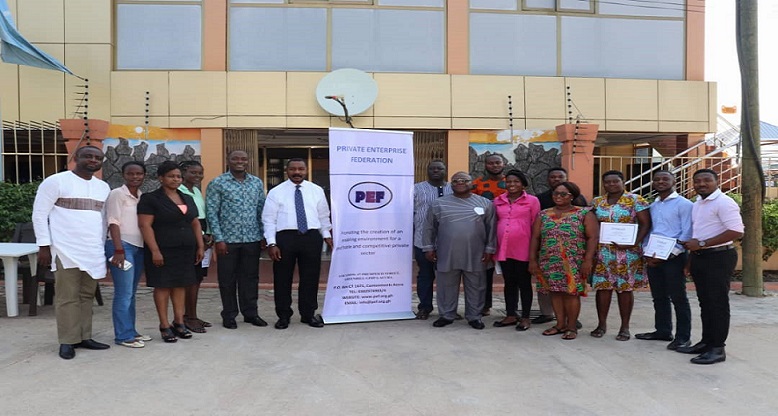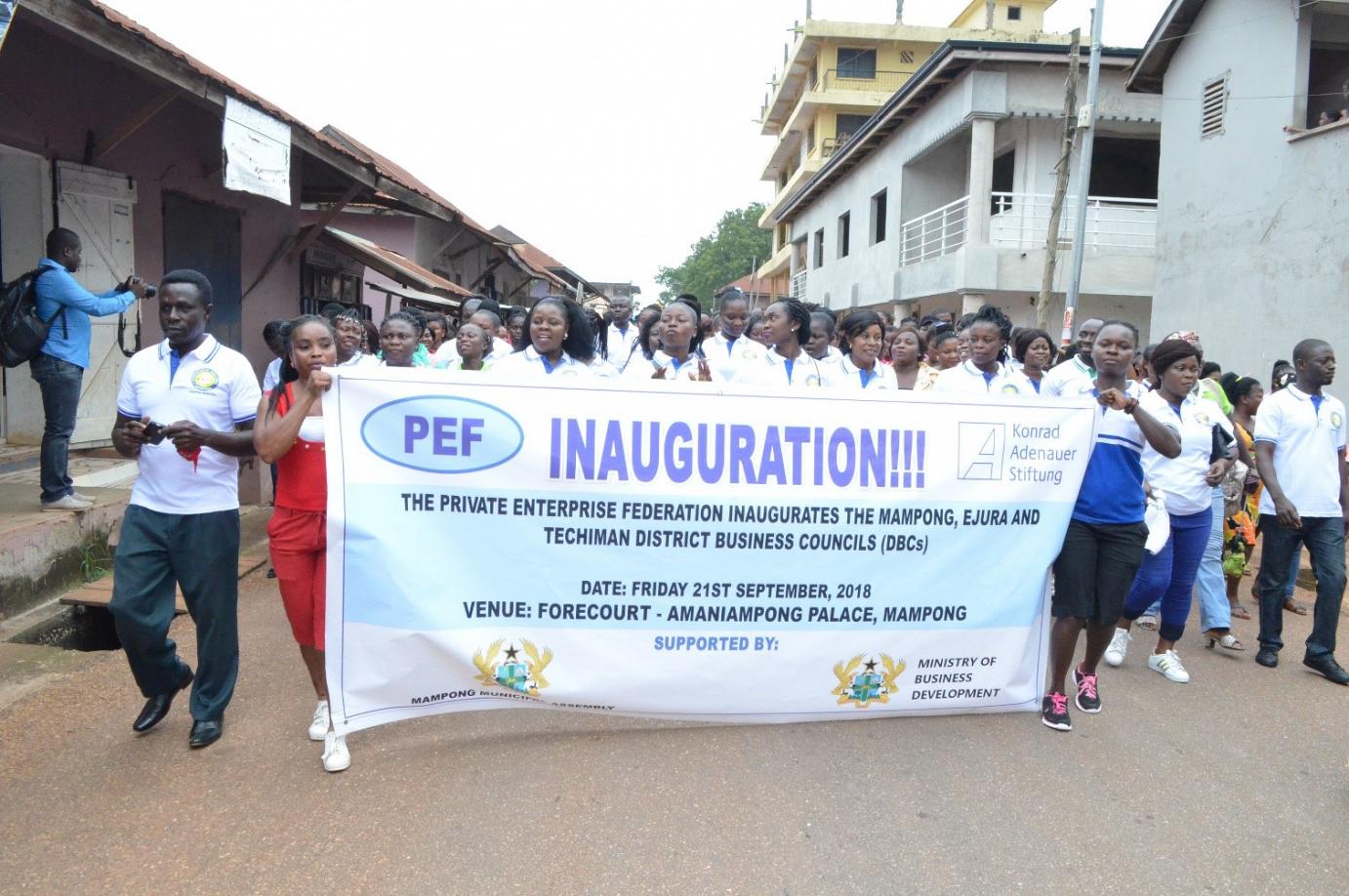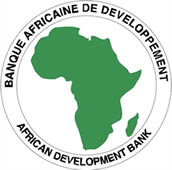
SUBMITTED TO
THE MINISTRY OF FINANCE
October 2018
Amendment of VAT Act 2013 (Act 870)
In the mid-year review of the 2018 Budget Statement, and Economic Policy, although the VAT rate was reduced from 17.5% to 12.5% the government imposed 2.5% GETFund Levy and 2.5% National Health Insurance Levy on businesses which were approved by Parliament. These policies were introduced to reduce the burden on consumers; however it has a negative impact on VAT registered businesses. The way it is structured now, businesses cannot pass on the new levy which previously were pass through to consumers. It therefore reduces the opportunity for businesses to keep additional slice of their internally generated funds for operations and sustainability. Government continues to receive the same quantum of revenue by this restructuring however, it raises additional tax burden on businesses.
The erstwhile VAT regime allowed VAT registered companies qualified to claim any VAT on imports and exports to reclaim their entire VAT payments through the input-output arrangements. However, the recent amendment reduced the reclaimable portion of the VAT impost from 17.5% to 12.5% with the conversion of GETFund and NHIL components from indirect tax to straight levies. These fiscal measures have culminated in a 5% increase in cost of production for companies which cannot be passed on to consumers.
The additional cost comes on the back of a challenging business environment especially for our mining companies that has undermined the competitiveness as well as their continuous operations; especially those mining support companies involved in the supply of goods and services who are yet to recover from the impact of the 3% flat VAT that was recently introduced. We call for a review and reversal of this policy to abate its negative impact on the profitability and sustainability of these businesses in Ghana.
VAT on locally produced goods
To strengthen the competitiveness of locally manufactured goods including furniture (from local wood) and foot wear, VAT should either not be imposed on locally produced goods or it must be reduced to at most 50% of the current rate. This is to enhance the competitiveness (in terms of pricing) of locally produced goods against foreign products which were produced with tax incentives and low-cost funding from their respective governments
Tier tax system
PEF’s initial review of the Income Tax Act 2015 (ACT 896) (ITA) revealed that there are some provisions in the tax law which impact negatively on the operations of businesses, especially the Micro, Small and Medium Enterprises (MSMEs). Currently, the provisions of the ITA are generic and applicable equally to all businesses regardless of size, capitalization, turnover and ability or inability to pay, disregarding the impact on infant industries and domestic indigenous MSMEs. As a consequence, most of these domestic MSMEs fail to formalize their operations through incorporation as registered businesses, in order to avoid payment of their share of taxes thereby reducing the amount of tax revenues that accrue to government. The Federation is proposing a TIERED SYSTEM OF TAXATION that will reduce the tax burden and cushion the hardships faced by domestic MSMEs in the country and make them more profitable, competitive and sustainable by keeping a fair share of their profits. This will ensure that businesses in different financial categories are made to pay taxes commensurate to their financial capabilities which will create an aura of voluntary tax compliance, lower the cost of tax administration and foster an expanded tax net which will inturn boost government tax revenues.
Eventually, it is expected that the private sector will become more tax compliant due to the introduction of better business-friendly provisions in the TIERED SYSTEM OF TAXATION taking into account the socio-economic realities of the business environment in Ghana; to create a thriving and competitive private sector that will boost government revenues through voluntary payments of taxes by profitable MSMEs to enable the government execute its developmental agenda.
Consolidation of Tax waivers, Exemptions and Tax Holidays under GIPC
The existing policy that allows various MMDAs, the Free Zone Board and other agencies to grant tax exemptions, waivers and other tax holidays should be reviewed and consolidated under the authority of Ghana Investment Promotion Center (GIPC) to foster efficient targeting of the use of tax incentives to drive the country’s provision of requisite infrastructure and general development. Furthermore, entities who qualify for tax exemptions must be reviewed to ensure equitable responsibility for taxes across all businesses including Free Zone Entities but not only on the back of the local businesses who are not free zone approved ventures.
Reinvestment of 25% of Profits of Tax Exempt FDI Companies:
Foreign Direct Investments who enjoy tax exemptions of any kind should be mandatory on them to reinvest at least 25% of their annual profit in the local economy also as tax exempt for five (5) additional years before repatriating that profit home. These profits should be invested possibly in other sectors of the economy unrelated to the sector of operations of the investee company to create a catalytic effect in boosting other sectors of the economy, as a consequence of the tax exemption that was granted at the expense of government forgoing the use of the potential tax revenues.
Local Content:
Successive Ghanaian governments have sought to realize the implementation of local content through various legal and policy initiatives. Several pieces of legislation govern the Oil and Gas sector in Ghana, some of which address local content in those sectors. However, there is no holistic local content policy covering all sectors of the Ghanaian economy. We call on the Government to include in the 2019 budget the development of a comprehensive local content legislative framework which will ensure inclusive equity participation, value addition with respect to the development of local industries, adoption and use of local raw materials wherever possible, technology transfer and outsources of goods and services to indigenous local partners, in order to catalyze the development and growth of local indigenous Ghanaian businesses, especially our construction industry which has come under severe challenges from overseas state sponsored companies with vast state resources dwarfing our infant construction companies.
Arrears to Contractors & other Service Providers to Government:
As a matter of urgency, we request that allocations are set aside in the 2019 Budget and thereafter to provide resources to clear arrears owed to Contractors and other service providers for work done for the government to be paid promptly with interest to defray the additional cost incurred by these contractors for loans acquired to honor the contracts. The budget should make it mandatory that in future contracts of the Government of Ghana with the indigenous local Contractors and other service providers should have a provision to cater to defray the additional cost for delayed payments.
Partnership of FDIs With Indigenous Local Businesses:
Similarly, we propose a partnership arrangement between Foreign Direct Investments (FDIs) who enjoy tax holidays and exemptions to operate in partnership with domestic indigenous Ghanaian businesses on at least 30-40 % equity participation basis.
As a country, we are failing to use the FDIs as a tool to transfer knowledge and technology to improve Ghanaian owned businesses
Removal of Surcharge on International Inbound Traffic
The governments of some countries, including Ghana have increased charges for terminating inbound international telephony traffic and have installed traffic monitoring devices to measure incoming international traffic and collect additional tax revenues at the wholesale level. The suppliers of the monitoring devices claim that the implementation of such systems increases transparency and provides a means for governments of such countries to mitigate revenue disadvantages associated with imbalances in incoming and outbound traffic volumes between developing and developed markets. In reality, however, such surcharges (taxes) are harmful to both operators and consumers and are ultimately counterproductive for governments.
The Surcharge on International Incoming Traffic (SIIT) takes the form of an imposed fixed price that operators must charge for international inbound termination, of which the government takes a set amount. SIIT prices are different from the competitive market prices for termination, which were applied before the tax was introduced. The surcharge has the following key effects on the industry
i. Higher prices that cause a reduction in incoming call volumes
ii. The price differentials increases incentives for illegal traffic
iii. The SIIT can have negative economic impacts.
Indeed the US Trade Representatives, 2013 Section 1377 Review on compliance with Telecommunications Trade Agreements, flags Ghana as one of the few countries with a Government-Mandated Termination Rate Increase. According to Federal Communications Commission (FCC) data between 2009 and 2011 since the introduction of the surcharge, the number of traffic/minutes sent to Ghana has decrease from 300million minutes to 170million minutes representing a decline of over 48percent.
The industry proposal for the removal of the Surcharge on International Incoming Traffic (SIIT), introduced in 2009 is as follows:
i. The removal of the mandatory $0.19 per minute tariff for international incoming calls to be replaced with an open market competitive tariff regime
ii. The conversion of the $0.06 surcharge to a 32% ad valorem tax (same ratio as 6:19).
iii. This will neutralize the grey market manifested by simboxing and fueled by arbitrage, leading to a further boost in revenues from international telecoms traffic.
Conclude Roadmap on Small Scale Mining Companies
A six-month moratorium was imposed on small-scale mining on April 1, 2017, to curb illegal mining and its negative impact on biodiversity and health. However, the ban is still in force because its desired impact has not yet been realized.
Although some of these small-scale mining companies are duly licensed and qualified to operate, they cannot do so because of the ban. Going forward, the Government has announced a road map towards lifting ban; however, we are all aware that the road map does not state clearly defined/specific timelines for the ban to be lifted. We therefore urge the authorities to complete the work on the subject as quickly as possible to enable genuine and duly authorized and licensed small-scale mining companies to resume operations. This action will rescue them from eminent collapse with its attendant socio-economic fallouts on both the business owners, their families and society at large.
AGRICULTURE
Government should introduce national policies and regulations for the operation of a sustainable Warehouse Receipt System (WRS).
The agricultural sector which caters to at least 44.6 % of the Ghanaian population is the sector of the Ghanaian economy with the greatest potential to lead to industrialization and quantum leap in the country’s development. However, the sector is plagued with several issues that result in huge amounts of post-harvest losses resulting in financial losses to investors of the sector, majority of whom are small holder farmers.
To address this waste, we recommend the following:
1. To establish a viable Warehouse Receipt System (WRS) with its accompanying state of the art warehouses and storage facilities for the various commodities, Maize (white and yellow), Sorghum, Soybean, Cowpea Rice, Legumes and other high value perishable commodities as a prelude for the development of a holistic Commodity Exchange.
2. Establishment of Targeted Incentivized Risk-Sharing in Agriculture Financing to provide long term funds both equity and loans, guarantees and incentives to attract enhanced investments into Agriculture
3. To develop a long term plan to forestall export of any raw agriculture produce except when it has undergone value addition processes, ie ZERO EXPORT OF AGRICULTURE RAW PRODUCE.
RESTRICTION OF COCOBOD SEED FUNDS TO INDEGINOUS LBCS:
It is an inefficient application of the country’s scarce resources for the Government of Ghana to borrow to finance the cocoa industry and use the borrowed funds to provide seed funds to foreign owned LBCs at zero cost to the beneficiary foreign company, who at the end of the season will repatriate the profits out of the country.
We request that with immediate effect, measures are put in place to restrict COCOBOD seed fund to only indigenous Ghanaian owned LBCs.
CAPITAL MOBILIZATION:
Conversion of the Special Import Levy (SIL) To Long Term Capital Formation
In the 2018 Budget Statement read in November 2017, approval was given for the Special Import Levy which was earmarked to expire in December 2017 to continue to be implemented for two more years. This means that 2% levy is applicable on all imports other than petroleum, fertilizer and machinery and equipment listed under chapters 84 and 85 of the Harmonised Systems Code (HS): ECOWAS Common External Tariff and other Schedules.
We request that Government converts this Levy with the current sunset date of December 31 2019 be continued into a 5-year capital mobilization scheme to be set aside to create a pool of long-term funds for private sector investments to forestall the absolute dependence on the short term high cost credit that is currently the backbone of private sector investment sources of funds. The reliance of investments on the back of competitive long term funds will definitely release a lot of value addition by the reduction in the cost of money to both private sector businesses and the public sector demands of capital for infrastructural development.
We request that in addition to this Special Levy to aggregate funds for investments, incessant promotional activities are undertaken to attract greater participation by businesses, labour and the citizenry in the 3-TIER Pension Scheme especially the THIRD TIER VOLUNTARY CONTRIBUTION to galvanize accumulation of long term capital for both public and private sector investments.
In the desire and efforts to meet the Sustainable Development Goals (SGDs) of There is an urgent need for LONG TERM CAPITAL to trigger volumes of private sector investments needed to meet the quantum of investments required to meet the SDGs to alleviate poverty, to create wealth that will culminate in additional tax revenues for government to execute an inclusive agenda to improve the livelihood of the citizenry, leaving no one behind
Respectfully Submitted:






































